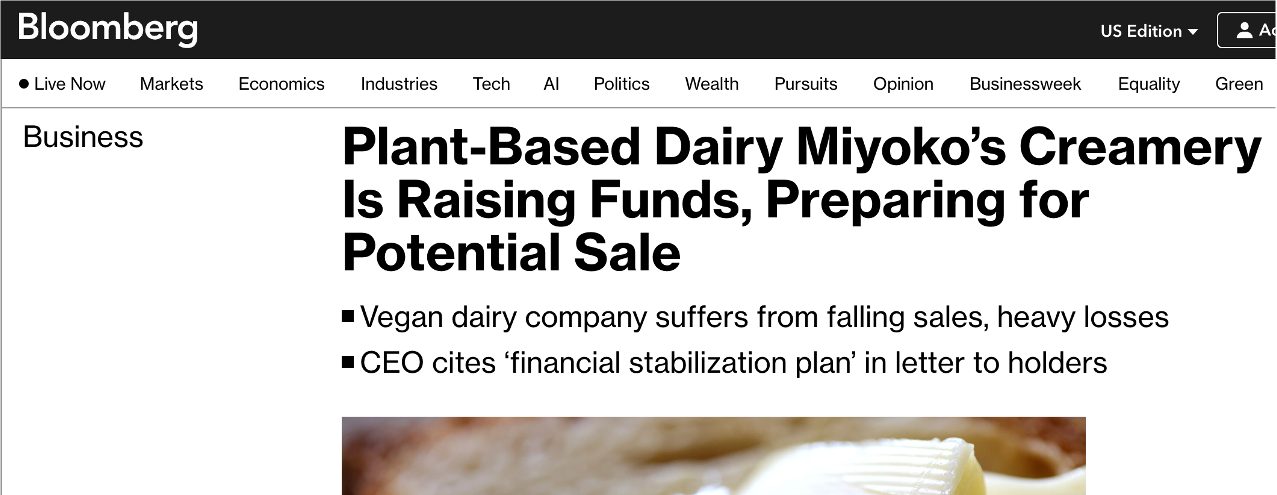Struggling with nutritional, technical and taste shortcomings that mean they fail to meet consumer expectations, plant-based cheese alternatives are locked into a niche. They will remain there for the next five years. Unless your strategy is to create a niche brand (and that's a perfectly valid strategy) no-one should have high expectations of success.
The stalling of this category is illustrated by US brand Miyoko’s Creamery. One of the most-hyped plant-based businesses of the last few years, Miyoko has gained a strong following in its native California for its plant-based cheese and plant-based "butter" (the new marketing word for margarine). But, following the departure of its founder, its owners have disclosed that it has falling sales and "heavy losses", according to a report by Bloomberg.

That is no surprise. At NNB we noticed in supermarket sales data back in 2022 that many products were already losing sales and one of them was Miyoko's. In common with most plant-based cheese business, the company has not succeeded, despite multiple product launches and significant marketing.
In the US, where plant-based has a 1% share of the cheese category, sales fell in 2022 by 3% by value and 5.2% by volume. In 2023, dollar sales fell by 9.9%, implying that the volume fall was the same size of bigger (given that it was a year in which most categories increased prices to offset raw material price increases).
In Europe, Germany's food culture – which means that consumers are accustomed to highly processed foods and are pro-plant – enables cheese substitutes to hit a 1.3% market share. But go to any country with a strong and healthy food culture and it's a different story - plant-based is stalled on a 0.3% share in Italy, for example.
Products perform poorly on taste and appeal to only a niche of consumers. And while plant milks offer a digestive benefit for those consumers looking to avoid the digestive discomfort they get from dairy milk, this is not a competitive advantage available for plant-based cheese.
Consumers who are accustomed to eating dairy cheese will be just as deterred by plant-based cheese as meat consumers have been by plant-based meat, and for much the same reasons.
Plant-based cheeses are quite unlike their dairy-based namesakes. They’re deficient in both ingredients and nutrition, offering often zero protein or at best 1-2g of low quality protein compared to the 25g in the same quantity of dairy cheese. They have long ingredient lists, and taken with their nil nutrition they are the very definition of an ultra-processed food of the type that the media and academia like to criticise. Plant-based cheese can't even offer a credible "more sustainable" message, made as they are with many industrial ingredients.
Plant-based cheeses are no longer a growth opportunity.
To understand what's happening in plant-based, in dairy and what the consumer drivers are, you can use our annual 10 Key Trends report.

